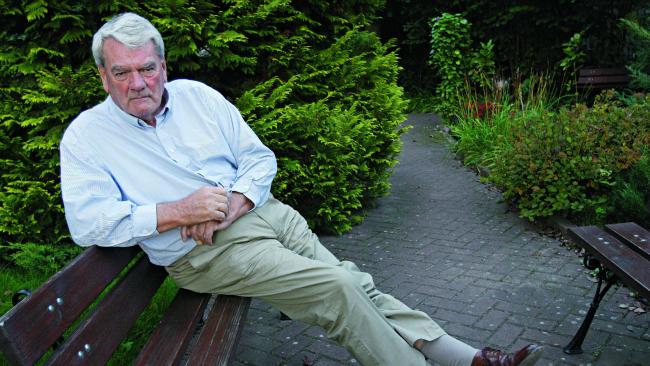David Irving emails me: “I will be at the airport with my Rolls.” And there he is, in the small crowd at arrivals in Inverness, Scotland: black-belted overcoat, cord trousers that seem a little short. The once-handsome face looks crumpled, angry and anguished. He leads me out to the Rolls-Royce — an old, restored Silver Spur.
After a short drive through snow-covered fields we arrive at a big, brown classical house with a grand, curved Doric portico. There are, he says, 40 rooms; these are split, seemingly at random, between Irving and another tenant. Inside, there are antlers everywhere and an organ. The two occupiers are feuding about many things. Irving says this will eventually drive him out of this little Highland paradise. We struggle down a corridor lined with a hundred-plus cardboard boxes. “These,” says Irving grimly, “are from the trial.”
They are, in fact, why I am here. The trial in question happened in 2000 and there is the new movie about it, Denial. Irving lost the case catastrophically, the judge concluding “that he is an active Holocaust denier; that he is anti-Semitic and racist and that he associates with right-wing extremists who promote neo-Nazism”.
“He couldn’t do anything else,” says Irving of the judge. “If he had found for me, it would have been the end of his career. It was pressure of circumstance.”
Irving was ruined professionally and financially; costs of £2 million were awarded against him and he was bankrupted. Yet he remains defiant and convinced that, when he self-publishes his memoir in, perhaps, three years, he will be vindicated. “Straight away, before you get to it,” he says urgently: “Am I a Holocaust denier? The answer is: no, I am not a Holocaust denier … I’m a Holocaust sleuth and I’m looking outside the box.
Read the full article by Bryan Appleyard at The Weekend Australian (subscription required).

